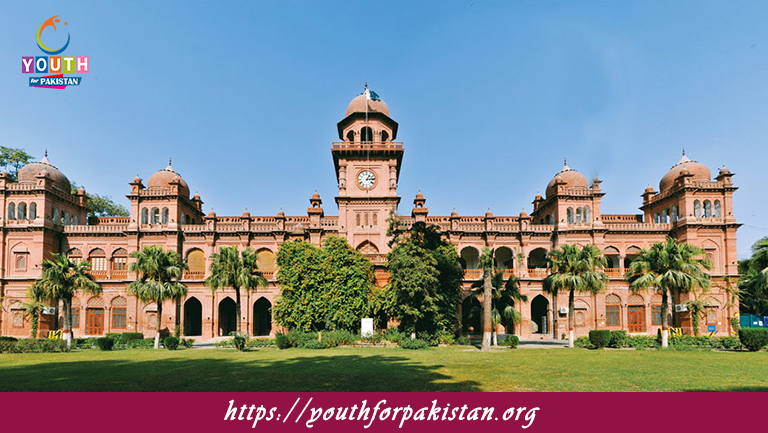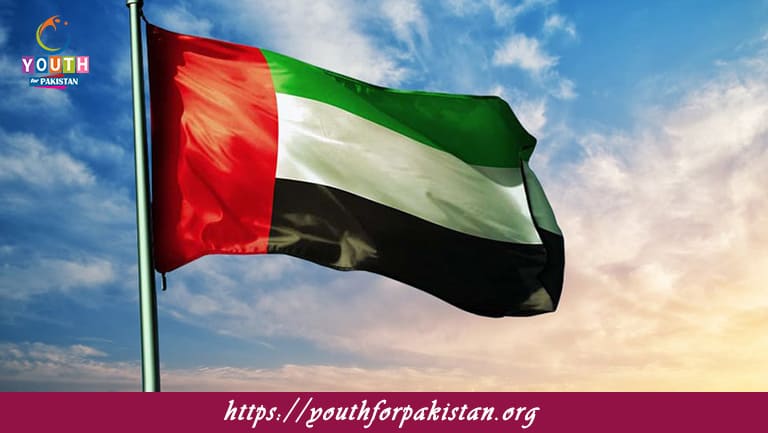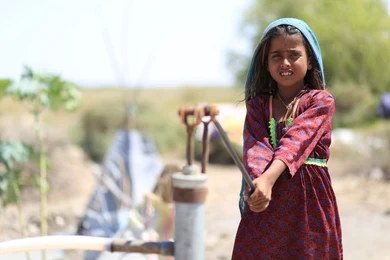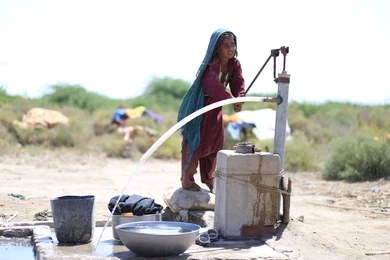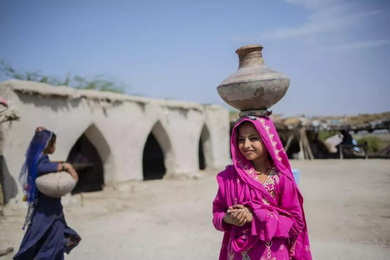The following are The Battle of Khandaq Battle of the Trench MCQs with answers related to Islamic Studies. We have arranged the most important and repeated MCQs in all the competitive examinations. The students can clear their concepts for The Battle of Khandaq Battle of the Trench MCQs online quiz by attempting these.
The Battle of Khandaq Battle of the Trench Online MCQs with Answers
The Battle of Khandaq took place in the year:
a) 617 CE
b) 620 CE
c) 624 CE
d) 627 CE
The Battle of Khandaq was fought between the Muslims of Medina and the:
a) Persians
b) Romans
c) Quraysh of Mecca
d) Byzantines
Who led the Muslims of Medina during the Battle of Khandaq?
a) Abu Bakr
b) Umar
c) Ali
d) Prophet Muhammad
The Battle of Khandaq is also known as the Battle of the:
a) Trench
b) Swords
c) Camels
d) Arrows
The Battle of Khandaq was a response to the threat posed by a coalition of tribes led by the Quraysh and the:
a) Persians
b) Jews of Medina
c) Byzantines
d) Romans
The Muslims of Medina dug a trench around the city as a defensive measure during the Battle of Khandaq. Who suggested this strategy?
a) Umar
b) Salman al-Farsi
c) Ali
d) Abu Bakr
The trench dug by the Muslims during the Battle of Khandaq was located on the:
a) East side of Medina
b) North side of Medina
c) West side of Medina
d) South side of Medina
The Battle of Khandaq marked the first use of defensive military strategy in the history of:
a) Arabia
b) Islam
c) Persia
d) Byzantium
The leader of the Quraysh in the Battle of Khandaq was:
a) Abu Bakr
b) Umar
c) Abu Sufyan
d) Khalid ibn Walid
During the Battle of Khandaq, the Quraysh were joined by allies from the tribe of:
a) Banu Hashim
b) Banu Qaynuqa
c) Banu Nadir
d) Banu Qurayza
The Battle of Khandaq was significant for the presence of Salman al-Farsi, a companion originally from:
a) Mecca
b) Persia
c) Rome
d) Yemen
During the Battle of Khandaq, a strong wind and rainstorm affected the camp of the Quraysh, causing them to:
a) Attack immediately
b) Retreat temporarily
c) Seek refuge in the city
d) Form an alliance with the Muslims
The siege imposed on Medina during the Battle of Khandaq lasted for approximately:
a) One day
b) Three days
c) One week
d) Two weeks
A Muslim companion who demonstrated exceptional bravery during the Battle of Khandaq was:
a) Abu Bakr
b) Umar
c) Hamza
d) Ali
During the Battle of Khandaq, a Jewish man named Nuaym ibn Masud played a crucial role in:
a) Commanding the Muslim forces
b) Advising the Quraysh leaders
c) Digging the trench
d) Causing discord among the enemy ranks
The Battle of Khandaq ended without a decisive victory for either side due to the defensive strategy of the Muslims and the:
a) Skill of the Quraysh cavalry
b) Arrival of reinforcements for the Quraysh
c) Heavy rain and windstorm
d) Treachery within the Muslim ranks
After the Battle of Khandaq, the Quraysh and their allies eventually retreated and left the Muslims of Medina:
a) Weakened and defeated
b) Strengthened and victorious
c) Suspicious of each other
d) Divided and conquered
The Battle of Khandaq had a lasting impact on the relationship between the Muslims and the Jewish tribes of Medina, leading to the expulsion of the tribe of:
a) Banu Hashim
b) Banu Qaynuqa
c) Banu Nadir
d) Banu Qurayza
The Battle of Khandaq highlighted the importance of unity among the Muslims and the consequences of:
a) Seeking alliances with non-Muslims
b) Failing to dig the trench
c) Underestimating the enemy
d) Defying the leadership of Prophet Muhammad
The Battle of Khandaq emphasized the role of:
a) Cavalry charges
b) Archers
c) Defensive strategy
d) Diplomacy
The Battle of Khandaq demonstrated that victory is not solely determined by numerical superiority but also by:
a) Divine assistance and strategy
b) Advanced weaponry
c) Skillful diplomacy
d) Mercenary soldiers
The Battle of Khandaq underscored the importance of being prepared for unforeseen challenges and:
a) Retreating at the first sign of danger
b) Relying solely on physical strength
c) Depending on allies for support
d) Trusting in God’s plan
The Battle of Khandaq was a reminder that God’s support can manifest through unexpected events, such as:
a) Enemy retreat
b) Earthquakes
c) Rainstorms
d) Sandstorms
The Battle of Khandaq taught the Muslims the importance of staying vigilant and alert, even during times of apparent:
a) Peace and prosperity
b) Defeat and adversity
c) Political alliances
d) Retreat and surrender
The Battle of Khandaq emphasized the significance of having allies who are:
a) Strong and powerful
b) Trustworthy and loyal
c) Skilled in warfare
d) Wealthy and influential
The Battle of Khandaq showcased the importance of making strategic alliances based on shared interests and:
a) Financial gain
b) Mutual respect and trust
c) Military dominance
d) Common ethnicity
The Battle of Khandaq highlighted the role of the Prophet Muhammad in:
a) Directing military strategy
b) Leading the cavalry charges
c) Digging the trench
d) Causing discord among the enemy
The Battle of Khandaq demonstrated the importance of not underestimating the capabilities of:
a) Non-Muslim tribes
b) Strong cavalry units
c) Skilled archers
d) Weaker enemies
The Battle of Khandaq had a lasting impact on the Muslims’ understanding of the importance of:
a) Offensive warfare
b) Defensive strategies
c) Mercenary soldiers
d) Looting the enemy’s camp
The Battle of Khandaq serves as a reminder that success in battle is not solely dependent on:
a) Weapons and armor
b) Numerical superiority
c) Skilled generals
d) Divine support and strategy
The Battle of Khandaq highlighted the importance of maintaining calm and composure in the face of:
a) Victory
b) Defeat
c) Retreat
d) Rainstorms
The Battle of Khandaq underscored the significance of:
a) Political alliances
b) Unity and cooperation
c) Seeking revenge
d) Isolation from other tribes
The Battle of Khandaq taught the Muslims about the importance of:
a) Trusting non-Muslim allies
b) Material gain
c) Defensive fortifications
d) Arrogance and pride
The Battle of Khandaq emphasized the concept of sacrifice and selflessness, as shown by the efforts of the:
a) Archers
b) Calvary
c) Women and children
d) Jewish allies
The Battle of Khandaq highlighted the importance of responding to threats with:
a) Diplomacy and negotiation
b) Escaping and seeking refuge
c) Fear and panic
d) Prayers and supplications
The Battle of Khandaq demonstrated that alliances based on shared values and goals are more effective than alliances based solely on:
a) Financial gain
b) Political interests
c) Military strength
d) Family ties
The Battle of Khandaq was a test of the Muslims’ faith and perseverance, as they faced challenges from both external enemies and:
a) Internal divisions
b) Natural disasters
c) Political unrest
d) Religious differences
The Battle of Khandaq serves as a reminder that divine assistance can come in unexpected forms, as exemplified by the role of the:
a) Quraysh leaders
b) Jewish allies
c) Roman Empire
d) Persian army
The Battle of Khandaq demonstrated the importance of consultation and seeking advice, as shown by the Prophet Muhammad’s decision to:
a) Dig the trench
b) Retreat from Medina
c) Attack the Quraysh
d) Form an alliance with the Romans
The Battle of Khandaq emphasized the significance of taking precautions and being proactive in the face of:
a) Defeat and adversity
b) Victory and triumph
c) Political disagreements
d) Apathy and indifference
The Battle of Khandaq showcased the importance of mercy and forgiveness, even towards those who had previously been:
a) Allies
b) Enemies
c) Neutral parties
d) Non-Muslims
The Battle of Khandaq had a lasting impact on the Muslims’ relationships with the Jewish tribes, leading to changes in their:
a) Economic practices
b) Social structure
c) Religious practices
d) Political alliances
The Battle of Khandaq emphasized the importance of adapting strategies based on changing circumstances, as demonstrated by the Prophet Muhammad’s response to the:
a) Rainstorm
b) Arrival of reinforcements
c) Quraysh retreat
d) Treaty negotiations
The Battle of Khandaq highlighted the concept of divine guidance and assistance as a source of strength and:
a) Wealth
b) Wisdom
c) Victory
d) Political power
The Battle of Khandaq served as a lesson about the importance of trust and cooperation among different segments of society, including the:
a) Elite leaders
b) Women and children
c) Youth
d) Mercenary soldiers
The Battle of Khandaq demonstrated that the success of a defensive strategy is contingent upon:
a) Numerical superiority
b) Strong fortifications
c) The element of surprise
d) Divine support and human effort
The Battle of Khandaq served as a reminder that alliances based on deceit and treachery are likely to:
a) Strengthen the alliance
b) Weaken the enemy
c) Lead to victory
d) Collapse over time
The Battle of Khandaq demonstrated that true strength lies in:
a) Military power
b) Wealth and resources
c) Unity and faith
d) Political alliances
The Battle of Khandaq highlighted the importance of resilience and perseverance in the face of:
a) Victory and triumph
b) Defeat and adversity
c) Changing alliances
d) Apathy and indifference
The Battle of Khandaq demonstrated that faith and trust in God’s plan are essential components of:
a) Military strategy
b) Political negotiations
c) Economic prosperity
d) Personal growth and development



